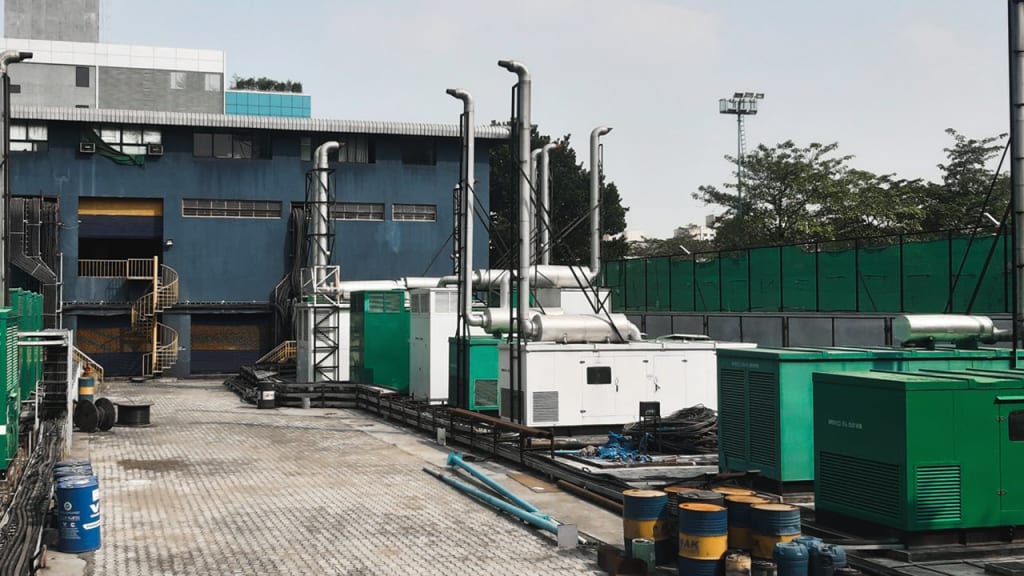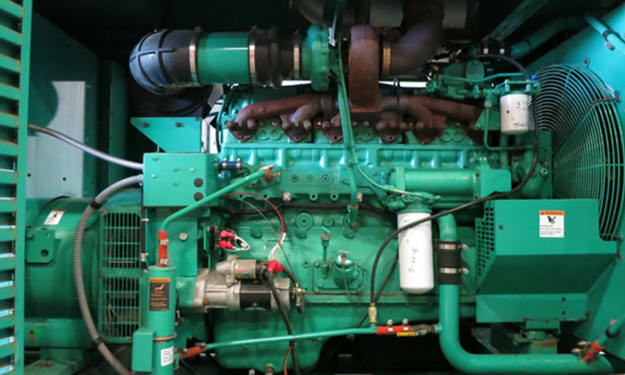Generator Issues: What to Investigate When It Runs But Doesn't Provide Electricity
Generation Maintenance Tips

Stable supply of electricity during unexpected power cuts… that's the reason why you invested in a generator. But, guess what??? Unexpected things happen. And, you should not be surprised if your generator fails to produce any electricity even when its engine is running. So, what makes your generator behave this way and what can you do to get the issue addressed? This blog post explains it all :):):)
Know the Reasons Why Your Generator Is Not Producing Electricity
Your generator works on the principle of electromagnetic induction… If it is to be put in a nutshell, a generator works by converting mechanical power to electric energy. Some of the major parts involved in the process are the engine, alternator, voltage regulator, etc… When such complications are involved, anything can go wrong that may prevent the generator from producing any electrical energy.
Below are some of the major reasons why your generator may have trouble producing power even when the engine is running.
Possibility #1- Residual magnetism is lost
As we already have discussed, generators work on the principle of electromagnetic induction; which simply means voltage is produced due to changing magnetic field. But guess what… generators don't use any magnet to create the magnetic field. Instead, they make use of electromagnetic.
After being turned off, the generator retains some of this magnetic field which is known as residual magnetism. It is because of this residual magnetism you get to start up the generator next time. If your generator’s residual magnetism is lost, it won’t generate any electricity even when it is running.
Possibility #2- Tripped circuit breaker
Another explanation as to why your generator may run without producing any power is a tripped circuit breaker. It is because of circuit breakers your generator's crucial circuits stay protected against overloading and short circuits. If for some reason one of the key circuit breakers of your generator gets tripped, it will run but won't be able to deliver power.
A tripped GFCI breaker can also interrupt the power output of a generator. Whatever is restricting power output to the generator, whether it is a tripped circuit breaker or a tripped GFCI breaker, you will need to find it and get it repaired.
Possibility #3- Damaged AVR
AVR or Automatic Voltage Regulator is an electric device that basically makes sure that the voltage your generator is producing stays at a constant level. By doing this, it essentially protects the load from being affected by electrical current surges, among other problems. If there is something amiss with the AVR, the generator's voltage output will be significantly reduced. And yes… it may not even produce any electricity.
There are many reasons why a generator's AVR may fail; such as unusual engine speed, overloading, abnormal power surge, electric short circuit, etc… In any case, if it occurs to you that your generator’s AVR has given up, you need to reach out to a nearby service center to get the issue diagnosed.
Possibility #4- Worn out brushes
This is another reason why your generator's power production capacity may get affected. Among other things, brushes convey electricity from the generator coil to the load. If they wear out due to old age, cracks, or any other reason, the generator’s ability to produce power will be greatly reduced. And, yes… faulty brushes may impair the power generation capability of the generator.
Fortunately, there are signs you can look for if you suspect brushes-related problems in your generator. Recognizable signs of defective brushes in a generator include; arching, inconsistent power output, the emergence of a distinctive burning odor, etc.
Possibility #5- Connection issues
Your generator is nothing but a combination of different parts- connected to each other through wires. If any of these wires become damaged or loose, the generator will not produce any power, even if its engine continues to run.
To Conclude
If your generator is not producing power even though the engine is running, this is a matter of some concern and should not be taken lightly. Listed above are some common explanations as to why your generator may behave this way. Whatever is impairing your generator's ability to make power should be identified and taken care of.
About the Creator
Leddy Power
Leddy Power is one of the leading electric power generation service provider located in Moorpark, CA. We are proud to provide our clients with comprehensive and reliable power solutions to cater to their needs.






Comments (1)
I like this article. It is well written and informative.